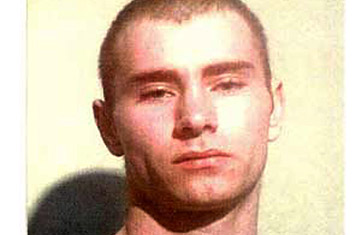
A Maryland murder trial is being turned into a debate on the lingering traumatic impact of the wars in Afghanistan and Iraq on the psyche of the Americans who served there. The prosecution is trying to prove that Gary Smith, a one-time Army Ranger, murdered his roommate of 20 days and fellow Ranger Michael McQueen, 22, by putting a .38-caliber revolver to his right temple and pulling the trigger. Smith’s attorney, however, notes that the 25-year-old former sergeant has been diagnosed with post-traumatic stress disorder following repeated combat tours, and insists that McQueen committed suicide, drunk, despondent and unemployed.
Whether McQueen’s death was a murder or a suicide, the tale offers a rare window into the grim realities of post-war mental trauma. As the odometer of
war clicks past 4,000 killed in Iraq, and approaches 500 in Afghanistan,
it’s stories like those about the Ranger roommates that often fall below the nation’s radar screen. The Army introduced these two men to one another — McQueen was African-American; Smith is white — and dispatched them to Afghanistan together twice, in 2004 and 2005. There, it seems one or both became unhinged by the experience. But in a country that rescues Wall Street banks from ruin while down-on-their-luck homeowners find themselves suddenly homeless, the prosecution would prefer to keep the focus of the trial in the Rockville, Maryland, courthouse away from the war.
“This is a homicide — Gary Smith is the person that did it,” prosecutor
John Maloney said in his opening argument March 18 in what is expected to be a two-week trial. “The most important thing you’ll bring to your
deliberations is your common sense.” But Smith’s attorney, Andrew Jezic,
said McQueen was unemployed, not in school and drinking heavily when he killed himself. Smith, upset at the death of a war buddy, tried to hide how he died to preserve McQueen’s dignity — and to avoid being implicated — according to police files. “There is no motive in this case,” Jezic said. “Zero.”
But Smith’s credibility has been hurt because of the changing story he
tells of the night of September 25-26, 2006. “Oh my God, help me,” he told a 911 operator that night, according to a recording played in the courtroom. “We were drinking,” Smith added later, “and I dropped him off at the house, and I came back, and he had a big hole in his head.” But within hours, Smith was telling detectives that Smith had been inside the apartment when McQueen killed himself. Upset over his friend’s violent death, and fearful of the consequences of the fact that Smith’s gun was used, he dumped the weapon in a nearby lake. Two forensic experts hired by the state to review the case split on whether the case is murder or suicide.
Jezic has argued that Smith, who says he saw a friend killed while in
Iraq, suffers from PTSD, which the lawyer maintains could account for the
changing story. Finding McQueen dead could trigger “certain bizarre actions” in someone with PTSD, Jezic said. “On the base and the battlefields, they protected each other,” Jezic said. “Gary would never hurt Mike.” Both sides concede there is no direct evidence of a motive Smith may have had to kill McQueen, or that McQueen was suicidal. Both men had gunpowder residue on their hands. Smith could be sentenced to life without parole if convicted of murder.
A VA doctor testifying in a different trial earlier this month revealed that 120,000 U.S. veterans who served in Afghanistan and Iraq have possible mental-health problems, with more than half potentially suffering from PTSD. In 2006 — the year McQueen died — Army soldiers killed themselves at the highest rate in 26 years. The rate has fluctuated, but rose from 9.1 confirmed suicides per 100,000 troops in 2001 to 17.3 in 2006. Recent studies suggest that the chance of a soldier committing suicide or having PTSD rises the more he or she is deployed to war zones. McQueen served three tours in Afghanistan, returning to the states two months before he died. Smith had served with him twice in Afghanistan, and also had served in Iraq.
Military leaders have acknowledged that the service was unprepared for the flood of mentally wounded caused by the wars. Given the lack of resources to handle the thousands of Gary Smiths and Mike McQueens returning from Afghanistan and Iraq, such collateral damage may be
inevitable. “Treatment is a struggle,” the Pentagon’s top doctor, Ward
Casscells, said at a March 14 congressional hearing. Five years into the
Iraq war, additional funding for screening, counseling and medications
should help soldiers in the future, he said. “We don’t really know very well
what treatments work,” he added. “But we’ve recognized this and we’re
committed now to taking a hard look at these treatments and comparing them.”